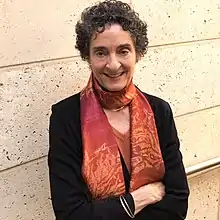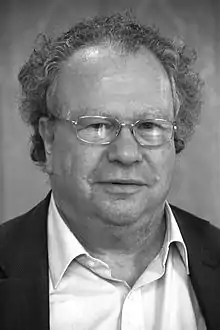| The Kavli Prize | |
|---|---|
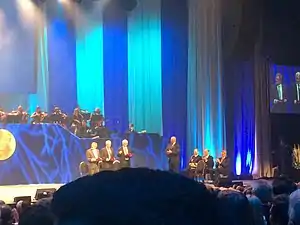 | |
| Awarded for | outstanding contributions in Astrophysics, Nanoscience, and Neuroscience. |
| Country | Norway |
| Presented by | |
| Reward(s) | A gold medal, a scroll, and a monetary award of US$1,000,000 |
| First awarded | 2008 |
| Number of laureates | 21 prizes to 54 laureates (as of 2021) |
| Website | http://www.kavliprize.no |
The Kavli Prize was established in 2005 as a joint venture of the Norwegian Academy of Science and Letters, the Norwegian Ministry of Education and Research, and the Kavli Foundation. It honors, supports, and recognizes scientists for outstanding work in the fields of astrophysics, nanoscience and neuroscience. Three prizes are awarded every second year. Each of the three Kavli Prizes consists of a gold medal, a scroll, and a cash award of US$1,000,000. The medal has a diameter of 70 millimetres (2.8 in), a thickness of 5 millimetres (0.20 in), and weighs 311 grams (11.0 oz).[1][2]
The first Kavli Prizes were awarded on 9 September 2008 in Oslo, presented by Haakon, Crown Prince of Norway.
Selection committees
The Norwegian Academy of Science and Letters appoints three prize committees consisting of leading international scientists after receiving recommendations made from the following organisations:
Laureates
Astrophysics
Nanoscience
| Year | Laureate | Institution | Country | Citation | |
|---|---|---|---|---|---|
| 2008 | 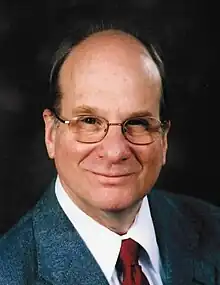 |
Louis E. Brus | Columbia University | "for their large impact in the development of the nanoscience field of the zero and one dimensional nanostructures in physics, chemistry and biology" | |
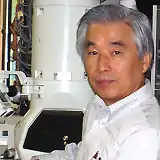 |
Sumio Iijima | Meijo University | |||
| 2010 |  |
Donald Eigler | IBM Almaden Research Center, San Jose | "for their development of unprecedented methods to control matter on the nanoscale" | |
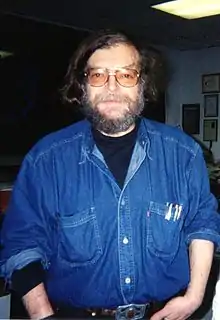 |
Nadrian C. Seeman | New York University | |||
| 2012 | .jpg.webp) |
Mildred S. Dresselhaus | Massachusetts Institute of Technology | "for her pioneering contributions to the study of phonons, electron-phonon interactions, and thermal transport in nanostructures" | |
| 2014 |  |
Thomas W. Ebbesen | University of Strasbourg | "for transformative contributions to the field of nano-optics that have broken long-held beliefs about the limitations of the resolution limits of optical microscopy and imaging" | |
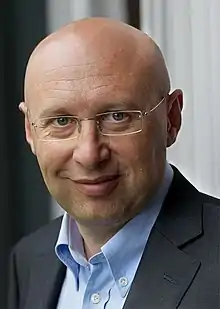 |
Stefan W. Hell | Max Planck Institute for Biophysical Chemistry | |||
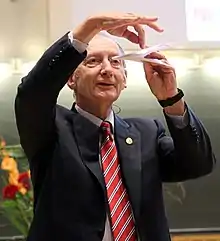 |
John B. Pendry | Imperial College London | |||
| 2016 | 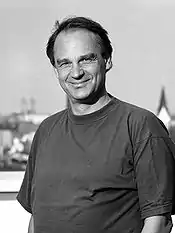 |
Gerd Binnig | IBM Zurich Research Laboratory | "for the invention and realization of atomic force microscopy, a breakthrough in measurement technology and nanosculpting that continues to have a transformative impact on nanoscience and technology"[7] | |
 |
Christoph Gerber | University of Basel | |||
| Calvin Quate | Stanford University | ||||
| 2018 | 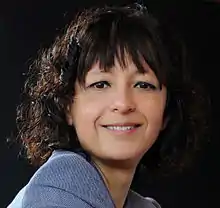 |
Emmanuelle Charpentier | Max Planck Institute for Infection Biology | "for the invention of CRISPR-Cas9, a precise nanotool for editing DNA, causing a revolution in biology, agriculture, and medicine"[8][5] | |
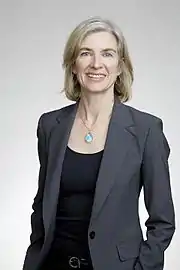 |
Jennifer Doudna | University of California, Berkeley | |||
 |
Virginijus Šikšnys | Vilnius University | |||
| 2020 | 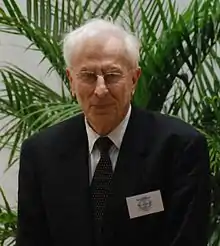 |
Harald Rose | Universität Ulm | “for sub-ångström resolution imaging and chemical analysis using electron beams”[9] | |
| Maximilian Haider | CEOS GmbH | ||||
| Knut Urban | Forschungszentrum Jülich | ||||
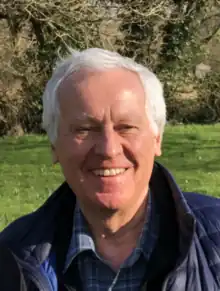 |
Ondrej Krivanek | Nion Co | |||
| 2022 | Jacob Sagiv | Weizmann Institute of Science, Israel | “for Self-Assembled Monolayers (SAMs) on solid substrates; molecular coatings to control surface properties“ | ||
| Ralph Nuzzo | University of Illinois at Urbana-Champaign, US | ||||
| David Allara | Pennsylvania State University, US | ||||
| George M. Whitesides | Harvard University, US | ||||
Neuroscience
See also
References
- ↑ Yngvar Reichelt: «Kavlimedaljen», NNF-Nytt. Norsk numismatisk tidsskrift, nr. 3, 2010, s. 21–25.
- ↑ The Kavli Foundation (n.d.). "Kavli Prize Medal". Archived from the original on 2 December 2020. Retrieved 25 October 2022.
- ↑ "2016 Kavli Prize in Astrophysics | www.kavliprize.org". www.kavliprize.org. Retrieved 2 June 2016.
- ↑ "2018 Kavli Prize in Astrophysics | www.kavliprize.org". Kavil Prize. 31 May 2018. Retrieved 31 May 2018.
- 1 2 3 "Jennifer Doudna shares 2018 Kavli Prize in Nanoscience". Berkeley News. 31 May 2018. Retrieved 31 May 2018.
- ↑ "2020 Kavli Prize in Astrophysics". www.kavliprize.org. 14 May 2020. Retrieved 27 May 2020.
- ↑ "2016 Kavli Prize in Nanoscience | www.kavliprize.org". www.kavliprize.org. Retrieved 2 June 2016.
- ↑ "2018 Kavli Prize in Nanoscience | www.kavliprize.org". www.kavliprize.org. Retrieved 31 May 2018.
- ↑ 2020 Kavli Prize in Nanoscience". www.kavliprize.org. 14 May 2020. Retrieved 27 May 2020.
- ↑ "2016 Kavli Prize in Neuroscience | www.kavliprize.org". www.kavliprize.org. Retrieved 2 June 2016.
- ↑ "2018 Kavli Prize in Neuroscience | www.kavliprize.org". www.kavliprize.org. Retrieved 31 May 2018.
- ↑ 2020 Kavli Prize in Neuroscience". www.kavliprize.org. 14 May 2020. Retrieved 27 May 2020.
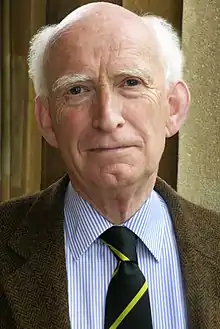
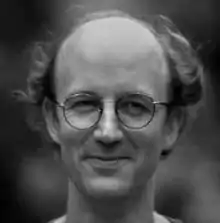


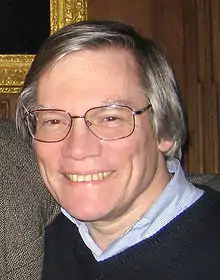

.jpg.webp)
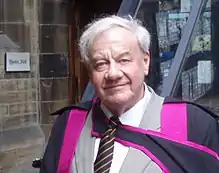
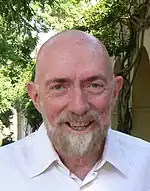





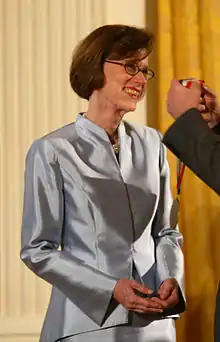
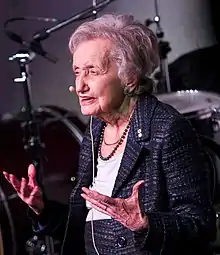
_2014.jpg.webp)


